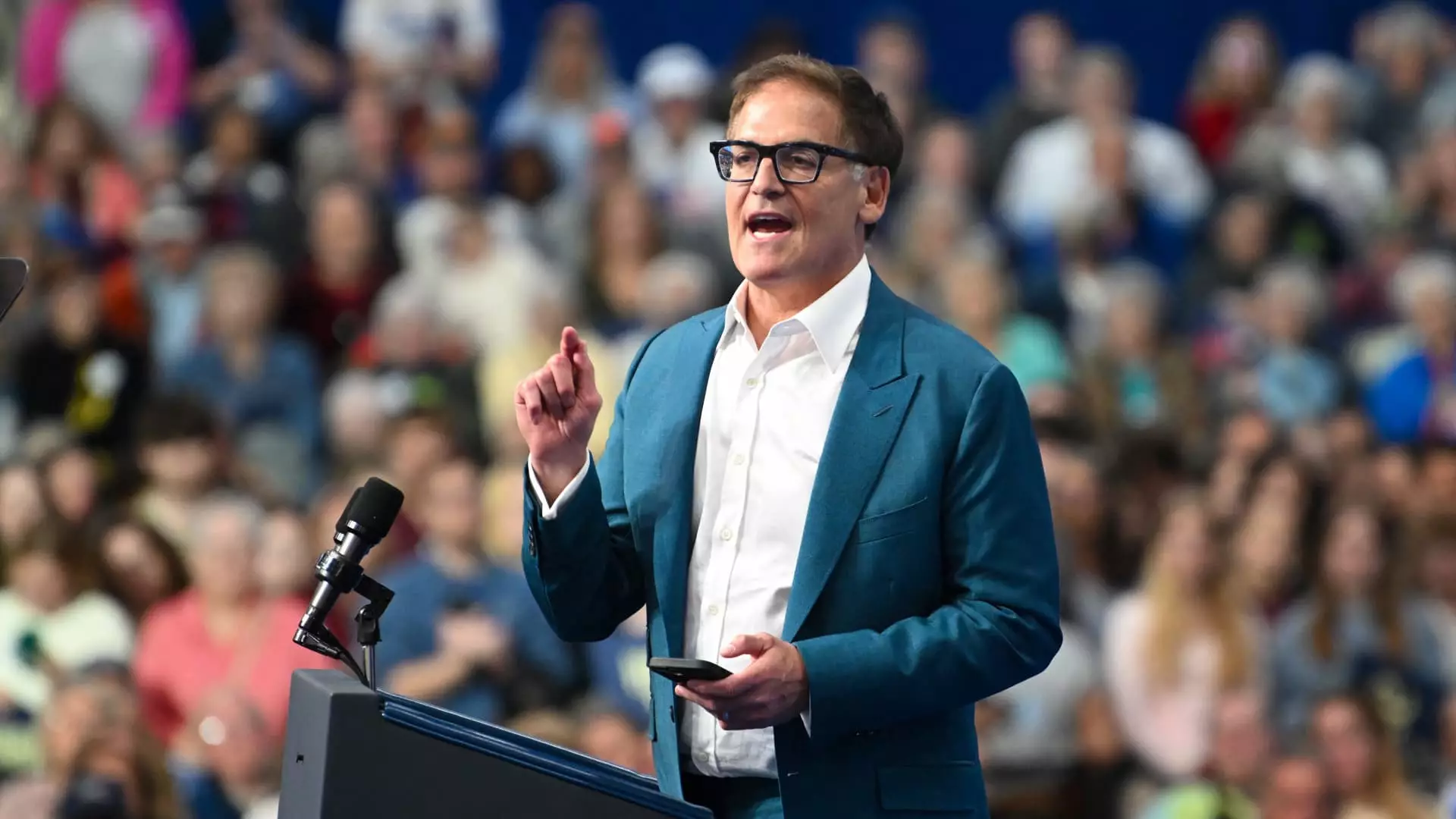In a political landscape that often sees business moguls stepping into government roles, billionaire investor Mark Cuban recently clarified his stance on potential political involvement. Although Cuban has emerged as a vocal supporter of Vice President Kamala Harris in her 2024 presidential campaign against former President Donald Trump, he explicitly stated that he has no desire to take on a cabinet position. This declaration, made during an appearance on ABC’s “This Week,” underscores a growing trend among successful entrepreneurs who opt to remain outside the political arena, choosing instead to leverage their influence from the sidelines.
Cuban’s insistence on not wanting to be a politician stands in stark contrast to his previous musings about governmental positions, particularly his critical views on Securities and Exchange Commission (SEC) Chair Gary Gensler. His earlier comments, where he floated the idea of stepping into a regulatory role, indicated a potential shift towards direct involvement in governance. However, his recent statements seem more aligned with the persona of a disruptor than a traditional politician. “I like being a disruptor as an entrepreneur,” Cuban remarked, emphasizing his preference for innovation over bureaucracy.
The Role of a Campaign Surrogate
While Cuban may not desire a cabinet role, his active participation in Harris’s campaign highlights a significant shift in his public engagement. The billionaire has become a vocal surrogate, advocating for the vice president’s vision while simultaneously outlining his own policy suggestions. This nuanced approach demonstrates that he intends to influence the political discourse without directly entering the fray as an elected official.
Cuban’s critiques of existing regulatory frameworks, particularly concerning corporate regulation, indicate an underlying enthusiasm for reform, even if he distances himself from the traditional political structure. His call for changes within the FTC, specifically regarding Chair Lina Khan’s approach to antitrust measures, showcases his deep-seated concerns about the balance of power in Big Tech. His viewpoints align him closer to the consumer interests while fostering a competitive business environment—an intriguing juxtaposition for someone with a vested interest in entrepreneurship.
Reputation and Responsibility
Mark Cuban’s dual identity as a billionaire entrepreneur and a political commentator allows him to wield considerable influence without the constraints of political office. His criticisms and recommendations for Harris’s potential administration point to a strategic positioning that prioritizes effective governance over political posturing. His engagement in the campaign represents a burgeoning trend where non-politicians utilize their platforms to shape policy discussions without pursuing an actual political agenda.
In thinking about Cuban’s future, it’s clear that his actions throughout this campaign reflect a broader debate about the roles that wealthy individuals can and should play within our political system. While his reluctance to assume a formal title suggests an awareness of the inherent complexities and challenges that come with public service, his willingness to offer his insights reveals a commitment to shaping a more robust, responsive governmental framework, ideally aligned with the business and consumer interests he champions. Ultimately, Mark Cuban’s journey through this campaign serves as a reminder of the fine line between influence and authority in today’s evolving political landscape.



Leave a Reply